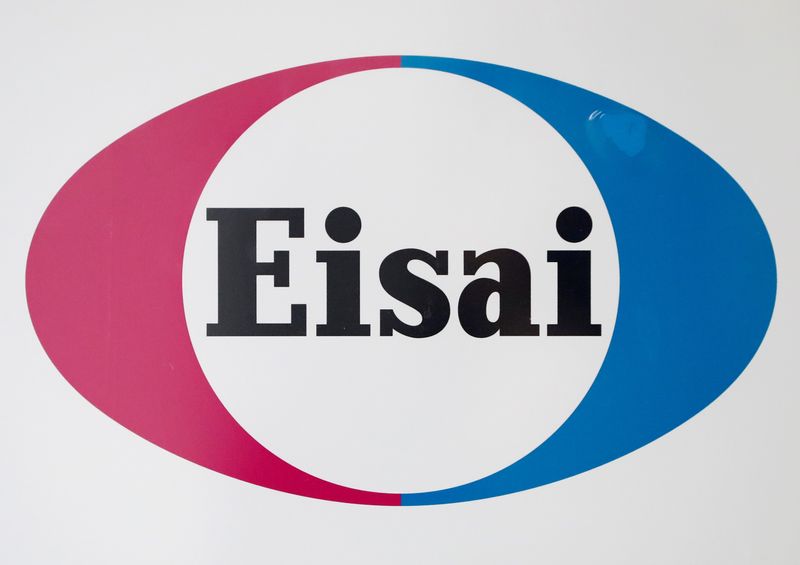U. S. FDA approves several applications for Alzheimer’s drug
2023.01.07 09:25

U. S. FDA approves several applications for Alzheimer’s drug
Budrigannews.com – The Alzheimer’s drug developed by Eisai Co., lecanemab (OTC:), was approved by the FDA on Friday. Biogen Inc. (NASDAQ:) and Ltd for patients who are experiencing the disease’s earliest stages of mind loss.
On Saturday, Eisai and Biogen announced that the Japanese pharmaceutical company had submitted an application for the drug’s full FDA approval.
The drug, which will be sold under the brand name Leqembi, is part of a class of treatments that remove sticky clumps of the harmful protein beta amyloid from the brain to slow the progression of the neurodegenerative disease.
Almost all of the previous experimental drugs that utilized the same strategy had failed.
According to Dr. Howard Fillit, chief science officer of the Alzheimer’s Drug Discovery (NASDAQ:) company, “Today’s news is incredibly important.” The foundation We are hopeful that we can make Alzheimer’s disease not only treatable but also preventable thanks to the results of our years of research into what is arguably the most complex disease that humans face.
According to Eisai, the drug would go on sale for $26,500 per year. After being stopped, Biogen shares were up 3% at $279.40.
The Japanese company stated that it also intended to submit applications for marketing authorization for Leqembi in Japan and the European Union by March 31, with the goal of receiving approval from the Japanese authority by the end of the year.
In the United States, Eisai predicted that the number of patients who would be eligible for the drug would reach around 100,000 within three years, and that number would continue to rise over the medium to long term.
On Saturday in Tokyo, Eisai CEO Haruo Naito told reporters and analysts, “Our assumption is that the number of global patients eligible for the drug will grow to approximately 2.5 million by approximately 2030.”
He stated, without providing a specific number, “The new drug may not generate a significant profit immediately after the launch, but it will start contributing to our profit in the latter half of the second year or the third year.”
The price of the drug “pleasantly surprised” Washington University neurologist Dr. Erik Musiek, who practices at Barnes-Jewish Hospital.
He stated, “I think it’s in the ballpark of what I would expect” in light of the market and the lack of other effective treatments for disease.
There will be restrictions on initial patient access as a result of a number of factors, one of which is Medicare’s reimbursement restrictions. Medicare is the federal insurance program for Americans 65 and older, which accounts for roughly 90% of those who are likely to be eligible for Leqembi.
“Access for those who could benefit from the newly-approved treatment will only be available to those who can pay out-of-pocket,” the Alzheimer’s Association stated in a statement. “Without Centers for Medicare & Medicaid Services (CMS) and insurance coverage.”
The FDA’s accelerated review process, which expedites drug access based on its impact on underlying disease-related biomarkers believed to predict a clinical benefit, led to Leqembi’s approval.
In a statement, FDA neuroscience official Billy Dunn said, “This treatment option is the latest therapy to target and affect the underlying disease process of Alzheimer’s” rather than just treating the disease’s symptoms.
Based on its ongoing review of the information that is currently available, CMS stated on Friday that the current coverage restrictions for drugs approved under the accelerated pathway may be reconsidered.
CMS stated that it would expand coverage if the drug received traditional FDA approval. According to Eisai officials, the company intends to submit data from a recent clinical trial with 1,800 patients that was successful as the foundation for a comprehensive standard review of Leqembi.
The CMS’s decision was largely in response to Eisai and Biogen’s previous Alzheimer’s treatment. Despite objections from outside experts and little evidence that the drug slowed cognitive decline, Aducanumab, which is sold under the brand name Aduhelm, received accelerated approval in 2021.
Before reducing the price by half, Biogen initially set the annual cost of Aduhelm at $56,000. In the first nine months of 2022, sales were only $4.5 million due to limited acceptance and insurance coverage.
Lecanemab is meant for people who have early Alzheimer’s disease or mild cognitive impairment, which doctors think is only a small portion of the estimated 6 million Americans who have the memory-destroying disease.
Patients will need to have brain imaging or a spinal tap performed on them to demonstrate that they have amyloid deposits in their brains in order to be eligible for the treatment. Additionally, they will need to have regular MRI scans to check for brain swelling, a potential serious side effect of this kind of medication.
When prescribing lecanemab to patients, the medication’s label warns doctors to exercise caution. An autopsy report on a lecanemab patient who suffered a stroke and later passed away, which was published this week, suggests that this could be a safety risk.
When compared to a placebo, the infusion-based drug lecanemab slowed the rate of cognitive decline in patients with early Alzheimer’s disease by 27% in the large trial. Brain swelling was seen in nearly 13% of Leqembi-treated patients in the study.
Because it is based on biomarkers rather than just symptoms, Dr. Babak Tousi, a neuro-geriatrician at the Cleveland Clinic, claims that the approval will make a “big difference” in the field.
He stated, “It’s going to change the way we make a diagnosis for Alzheimer’s disease, and it will do so with more accuracy.”
Tousi acknowledged that the drug’s likely benefits would be modest. Nonetheless, it is a benefit we were unable to attain prior to this approval.
More Air India expelled pilot for indecent treatment of violent passenger








